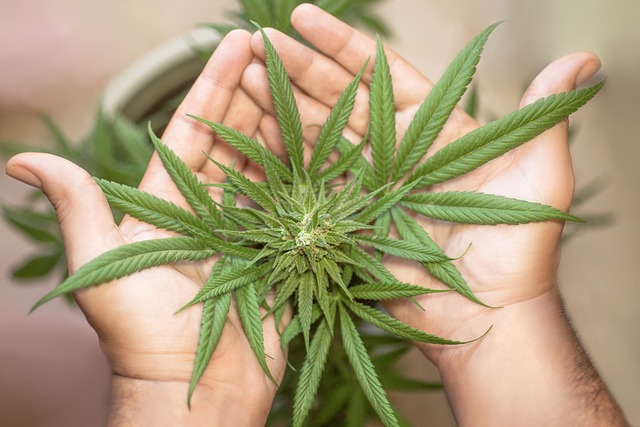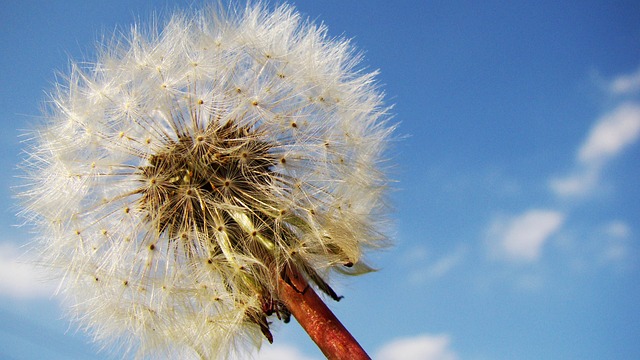As of the latest updates, THCA (tetrahydrocannabinolic acid), a non-psychoactive precursor to THC, is legally available in Nevada under the state's Recreational Use of Marijuana Act. Adults aged 21 and over can legally possess and purchase up to one ounce of cannabis products including THCA flower from licensed retailers. The state's regulatory framework ensures consumer safety and adherence to legal standards for the integrity of the market. While THCA is known for its therapeutic benefits and potential relief from various ailments, consumers should exercise caution due to individual differences in response and the fact that it can convert into psychoactive THC when heated or exposed to certain chemicals. The effects of THCA are under scientific study, with promising initial reports but a need for comprehensive research to fully understand its health implications. Consumers interested in THCA should consult healthcare professionals to ensure it aligns with their health regimen and does not interfere with any medications they may be taking. In Nevada, the legal status of THCA is well-established within the state's cannabis market, offering a point of interest for those looking into its potential benefits. Always remember to stay informed about local regulations when using THCA products, and approach their use responsibly, especially if you have health concerns or sensitivities.
Exploring the nuances of cannabinoids, this article sheds light on THCA flower, its legal standing in Nevada, and the array of potential effects it may induce. As THCA gains prominence for its therapeutic properties, understanding its side effects becomes crucial for safe use among Nevada’s residents. This comprehensive guide aims to demystify the role of THCA within the cannabis spectrum and equip readers with the knowledge to navigate its effects responsibly.
- Understanding THCA Flower: Legal Status and Potential Effects in Nevada
- The Role of THCA in Cannabis and Its Reported Side Effects
- Navigating the Side Effects of THCA Flower: A Comprehensive Guide for Nevada Residents
Understanding THCA Flower: Legal Status and Potential Effects in Nevada

In the ever-evolving landscape of cannabis legislation, understanding the legal status of THCA flower—a form of raw cannabis that contains tetrahydrocannabinolic acid, a precursor to THC—is paramount for consumers and regulators alike. As of the knowledge cutoff in Questions Answered 2023, THCA is legal in Nevada with certain restrictions. Nevada’s Recreational Use of Marijuana Act allows adults aged 21 and over to possess up to one ounce of cannabis for recreational use, which includes THCA flower, provided it is purchased from a licensed retailer. The state has established a regulatory framework that governs the cultivation, processing, and sale of cannabis products, including those containing THCA. This framework ensures consumer safety and compliance with state laws, which is crucial for maintaining the integrity of the market.
Consumers in Nevada interested in exploring the potential effects of THCA flower should approach it with caution. Unlike its psychoactive counterpart THC, THCA is non-psychoactive and is often touted for its therapeutic properties, potentially offering relief from pain, inflammation, and other symptoms without the ‘high’ associated with THC. The effects of THCA are subject to individual body chemistry and may vary; it’s known to interact with the body’s endocannabinoid system, which plays a role in regulating various physiological processes. While anecdotal evidence and early research suggest promising health benefits, further scientific investigation is necessary to fully understand its potential effects. As such, those considering THCA flower as part of their wellness routine should consult with healthcare professionals to ensure it aligns with their health needs and does not conflict with any medications they are taking.
The Role of THCA in Cannabis and Its Reported Side Effects

THCA, or tetrahydrocannabinolic acid, is a non-psychoactive compound found in raw cannabis plants, which, when heated, converts into the well-known psychoactive substance THC. THCA is gaining attention for its potential therapeutic properties and has been explored in various medical research studies due to its anti-inflammatory, analgesic, and neuroprotective effects. In states like Nevada where cannabis derivatives are legalized under specific regulations, THCA’s legal status allows for the exploration of these benefits within legal boundaries.
While THCA is generally considered safe, it’s not without its reported side effects when consumed in large quantities or converted into THC through decarboxylation. Users may experience some adverse reactions such as dry mouth, red eyes, and mild anxiety, which are common with cannabis consumption. Additionally, due to the lack of regulation and standardization in the cannabis industry, the concentration of THCA can vary significantly between products, potentially increasing the risk of side effects. It’s important for consumers to be aware of the specific legal frameworks within their jurisdiction, like Nevada, and to consume THCA-rich products responsibly and with caution, especially if they are sensitive to cannabis or have pre-existing health conditions.
Navigating the Side Effects of THCA Flower: A Comprehensive Guide for Nevada Residents

Navigating the side effects of THCA flower requires a thorough understanding of its legal status, potential effects, and safe consumption practices for Nevada residents. THCA, or tetrahydrocannabinolic acid, is a non-psychoactive cannabinoid found in raw cannabis plants, which can psychoactively affect individuals when heated. As of the knowledge cutoff in 2023, THCA is legal in Nevada under certain conditions. Nevada’s recreational cannabis laws allow for the possession and use of cannabis products, including THCA flower, by adults aged 21 years and older. However, it’s crucial to differentiate between THCA and its psychoactive counterpart, THC, as their legal status and effects differ.
Understanding the nuances of THCA’s legality and effects is essential for consumers. While THCA itself does not produce a high, it may convert into THC upon decarboxylation—a process that occurs when cannabis is heated or exposed to certain solvents. This conversion can lead to intoxicating effects if the THCA flower is improperly handled or used in certain ways. Common side effects associated with THC consumption, which may also apply to THCA in its psychoactive form, include red eyes, dry mouth, impaired motor skills, altered perception, and anxiety, among others. Nevada residents should be aware that consuming THCA flower can lead to these side effects if the THCA is converted into THC. It’s important to start with a low dose and wait for its effects before considering any increase in dosage. Additionally, individuals should consult with a healthcare professional or a knowledgeable dispensary staff member to ensure safe usage and to understand the specific legalities surrounding THCA products in Nevada.
In Nevada, where the legal landscape of cannabinoids continues to evolve, understanding the potential effects and side effects of THCA flower is crucial for residents exploring its benefits. This article has delved into the role of tetrahydrocannabinolic acid (THCA) within the cannabis plant and highlighted its distinct characteristics compared to its more famous counterpart, delta-9-tetrahydrocannabinol (THC). While THCA is known for its non-psychoactive properties and potential therapeutic benefits, it’s important to recognize that like any substance, it can induce certain side effects. Nevada residents considering THCA flower should approach its use with informed awareness, adhering to the state’s regulations regarding cannabis products. With a focus on safety and education, this guide aims to provide a clear understanding of how THCA may affect individuals, enabling informed decisions within the legal boundaries set forth by Nevada law.
